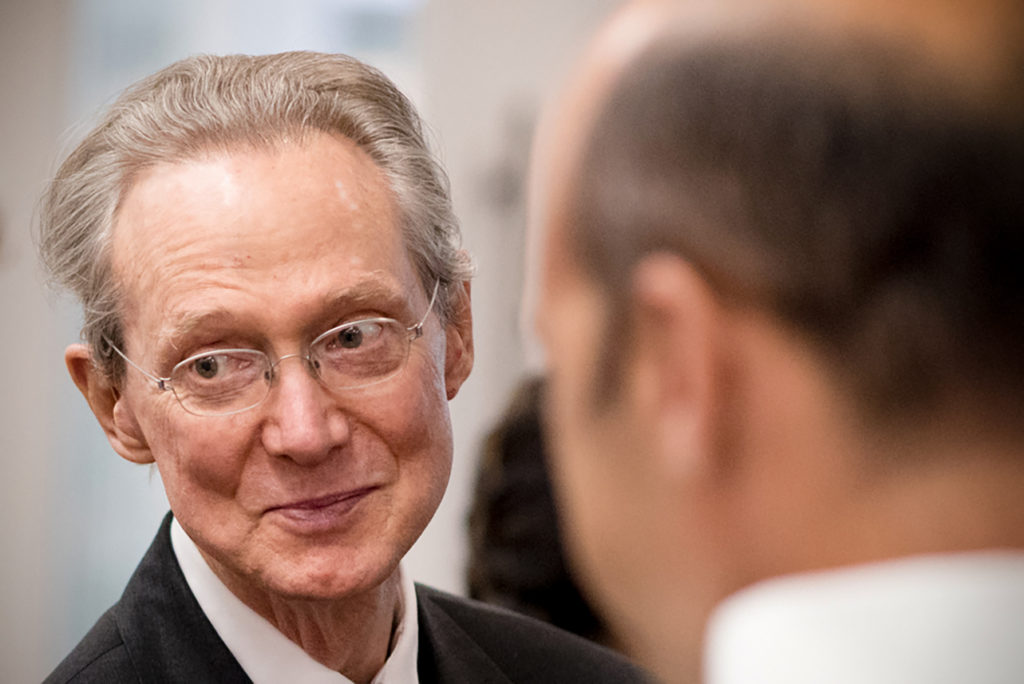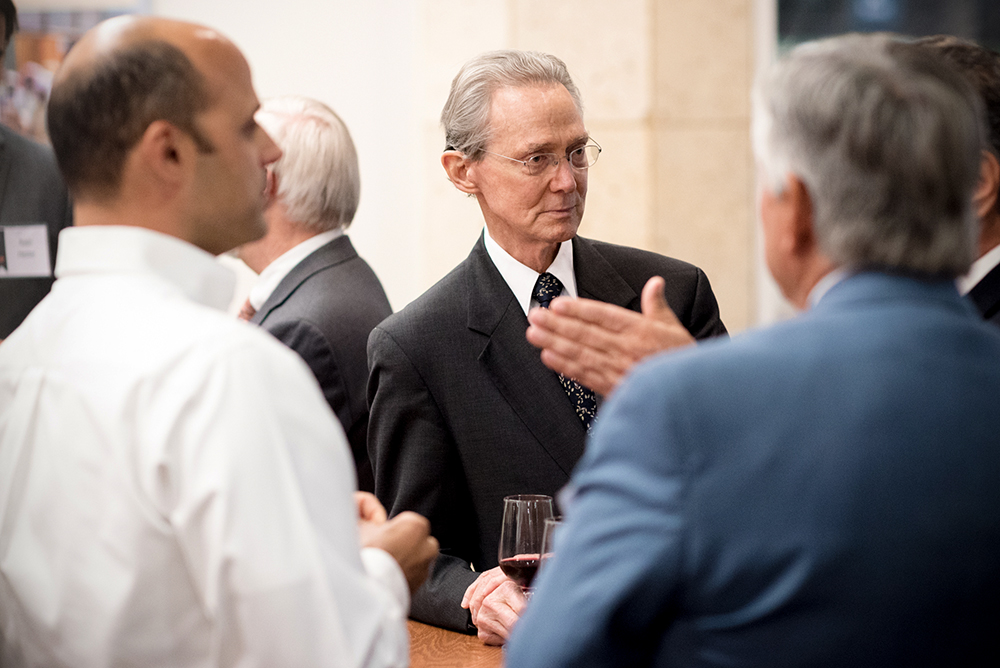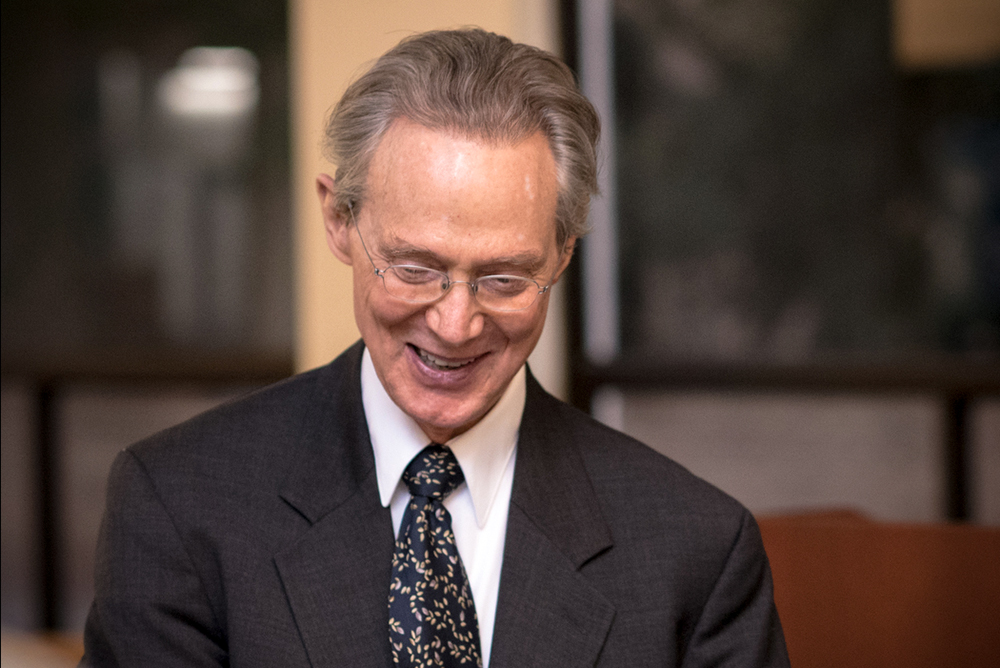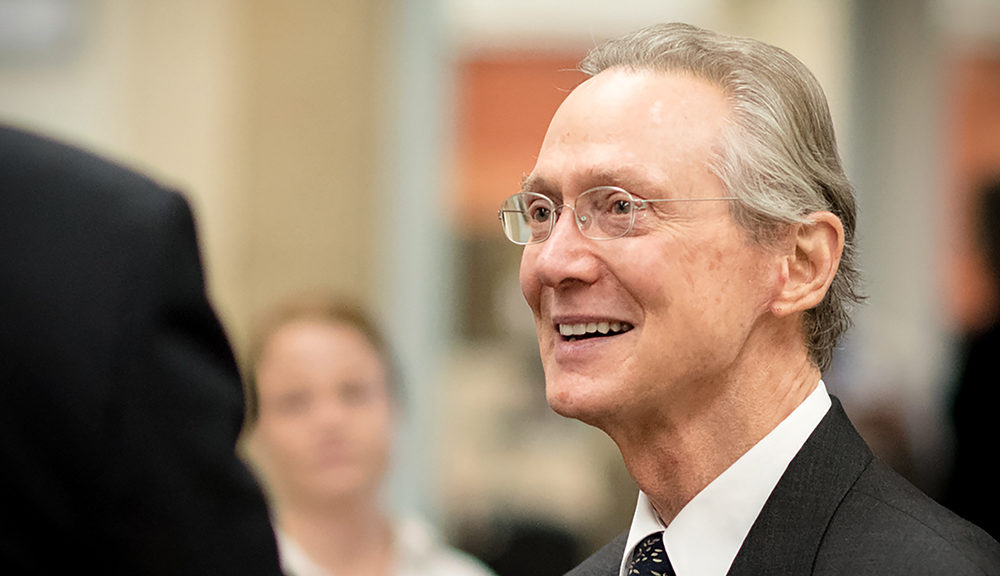Despite his spare frame and quiet demeanor, Greg Lipscomb isn’t a wallflower, especially regarding his thoughts on the subject of libraries.
“The library is just in my veins,” he says. “I cannot imagine living in a society or a culture that doesn’t have a library.”
Lipscomb is the incoming chair of the UT Libraries’ Advisory Council and has just committed to a large planned gift for the Libraries, so I’m sitting with him to find out why.

He begins by recounting the period during his study at UT in the early 1960s when a confluence of history and wanderlust compelled him in a direction that would ultimately lead him on a fifty-year journey away from Austin, on an odyssey of professional work and travel that would brush against events of notable historical significance.
“It was at the end of 1961 – the end of my sophomore year – I was over in one of the massive reading rooms in the Tower with the beams above and the wide tables and so forth, and at the end of finals, I stood up and I went out and took on the world as best I could see it in my own interpretation,” says Lipscomb, “and I was gone from that sort of setting for 50 years.”
Lipscomb expresses that he wasn’t walking away from his college career or academic endeavor forever – he went on to graduate Phi Beta Kappa from UT – but the draw of civic responsibility was too compelling to ignore. This was the time of John Kennedy’s clarion call to public service, and the cacophony of protest was growing audibly across the campus.
“You have to realize that in the 60s, you could literally be in class — many times we had the windows open because there wasn’t air conditioning — and you could hear civil rights demonstrations out on Guadalupe,” he says. “And there was this pull. John Kennedy was in office and he was making politics elegant again for the first time since Roosevelt. And the notion of public service was big.”
The urge to be part of something larger than himself became too strong to dodge, and led him down a five-decade path which presented the opportunities that ultimately formed him as a person.
“I felt the need to play a concrete role in the changes that were happening, so I got involved in student politics,” he recounts. “I got involved in civil rights. I went off to the army because of Vietnam. I went around the world. I went to California and worked for Jerry Brown. Went to Washington and worked for the Democrats there. Went to Harvard for the Kennedy School,”
Lipscomb became an active leader in the student civil rights protests at UT, was elected student body president in 1964, and used his standing to make the final push to get the regents to integrate the dorms on campus. He and a carload of his journalism colleagues from The Daily Texan drove 800 miles to document the fateful march at Selma, Alabama. As a member of ROTC, Lipscomb landed in an intelligence unit at the Pentagon during the war in Vietnam. After hitchhiking around the world with his wife, he worked at the San Francisco Chronicle, which propelled him into California politics, including a position in Governor Jerry Brown’s administration. He later returned to D.C. as a speechwriter for the first African American chair of the Federal Communications Commission. Any pairing of these life events might be enough to mention; that they’re woven into a single period of a single life is remarkable.

Amid his extended interlude in the Beltway at the FCC, Lipscomb began to seek distraction through some of the intellectual rigor that he left behind in college. He surveyed his environs and eventually wound up bumping around the library at George Washington University (GWU). After being given broad access to resources there, he felt an obligation to do what he could to return the favor, and approached the library’s development office to make a donation. Library administrators thought that as someone with no significant ties to GWU, Lipscomb might provide a valuable perspective as chair of their advisory board. His acceptance of that role enjoined him to a cause in libraries.
“Several years later, I decided retirement was timely. I was burned out on Washington. It had changed in temperament.”
The experience at GWU also elicited a change in him. Lipscomb summoned the earlier version of himself, making a conscious attempt to return to the point in time when he walked out of the library back in 1961 to take on the world. He wanted to find a place to settle where he would have ready access to the knowledge resources of a library, and began to consider all the familiar places from his past.
“And then, in 2014, I came back to Austin and I sat down at the same place and picked right up where I left off. What I was reading, what I was writing,” he says. “It’s like T.S. Eliot’s Four Quartets – ‘in my beginning is my end,’” says Lipscomb.
Lipscomb personifies this internalized value as “The Eternal Sophomore.” “That’s the kind of mindset I say with affection. You’re on the precipice, but your mind is still fresh, your attitude is fresh. And I saw the library reading room as a sort of cathedral, a sacred space. That’s sort of where I came back and picked up.”
“Coming back was a huge decision, and I came back humbled – and a little appalled at my arrogance sometimes along the way. Also proud of certain things and people I worked with, and causes I worked on. But I was ready to keep learning as a sophomore.”
And some undergraduates on campus might recognize him as a fixture in their world, or, perhaps, as a fellow traveler. Lipscomb’s loyalty to self-improvement through learning means he spends a significant chunk of his time on campus, much of it on the upper floors of the Perry-Castañeda Library.
“Within the closures of this building – if I had food and medicine – I could be here indefinitely,” he says. “Right now I spend about 20 hours a week – it’s a part-time job. I got up to that writing some personal stuff and just catching up on all the reading I never got to, the great reading.”
Lipscomb continued to feel a responsibility to the Libraries when he returned to Austin, wanting to carry through on the advocacy role he’d taken on at George Washington. He expressed interest to administrators at the UT Libraries, and was invited to join the council in 2014 where he has been a consistent participant not only at regular meetings, but as a vocal proponent and supporter both on campus and beyond.
Still, Lipscomb’s primary drive is in discovery and personal growth. That lengthy period of working on behalf of others has earned him the opportunity to focus on his interests, and he’s taking full advantage of it.
“The library to me is a great conversation,” he says. “I think of it in terms of books – but these books, they talk back and forth. And you can tell the mentor and the mentee — like in a translation of The Iliad or something — one passes on to the other. It’s the DNA of ideas. You can start out with just a germ of a phrase and watch it blossom into something right there.”

But even the bibliophile in Lipscomb recognizes the value of a diverse array of resources. He’s spoken extensively with library professionals about the transition to digital resources and the advantage it gives to preservation, and he’s been in active attendance at all of the public discussions in the last year related to a task force on the future of UT Libraries, where the conversation about the value of books and the impact of technology has real currency.
He especially appreciates the benefits that technology brings to research, particularly in making discovery significantly more efficient: “You can do it digitally. That’s a different training that I’m having to come up to, but I respect it. It’s easy to say, ‘Everybody’s just channel-surfing through nothing more than a paragraph or two.’ It’s a mile wide and an inch deep. But, also, you can search, you can go backwards and forwards. Software is beginning to mimic the brain, or learning as we know it.”
Whatever the challenges that have arisen since he was an undergraduate at UT, Lipscomb feels his experience all pointed him back to this place.
“I didn’t realize back in 1961 how much had been passed on to us in terms of the resources and the staff, the wonderful reading rooms – I didn’t realize until later,” says Lipscomb. “That’s when it occurred to me that I owed something.”
“The library function, role, the sanctuary, the passing on from one culture to another – it’s an optimistic enterprise,” he continues. “It says, ‘We have here your past, which is valuable, and you have to carry it forward.’ That’s what we do in the libraries. You owe current and future generations the gratitude that you received.”
“There is almost a Buddhist sense of circularity…returning to where you started. You come back and pay respects to the master that formed you. The mentor, the habits, the patterns, the depth of thinking.”

